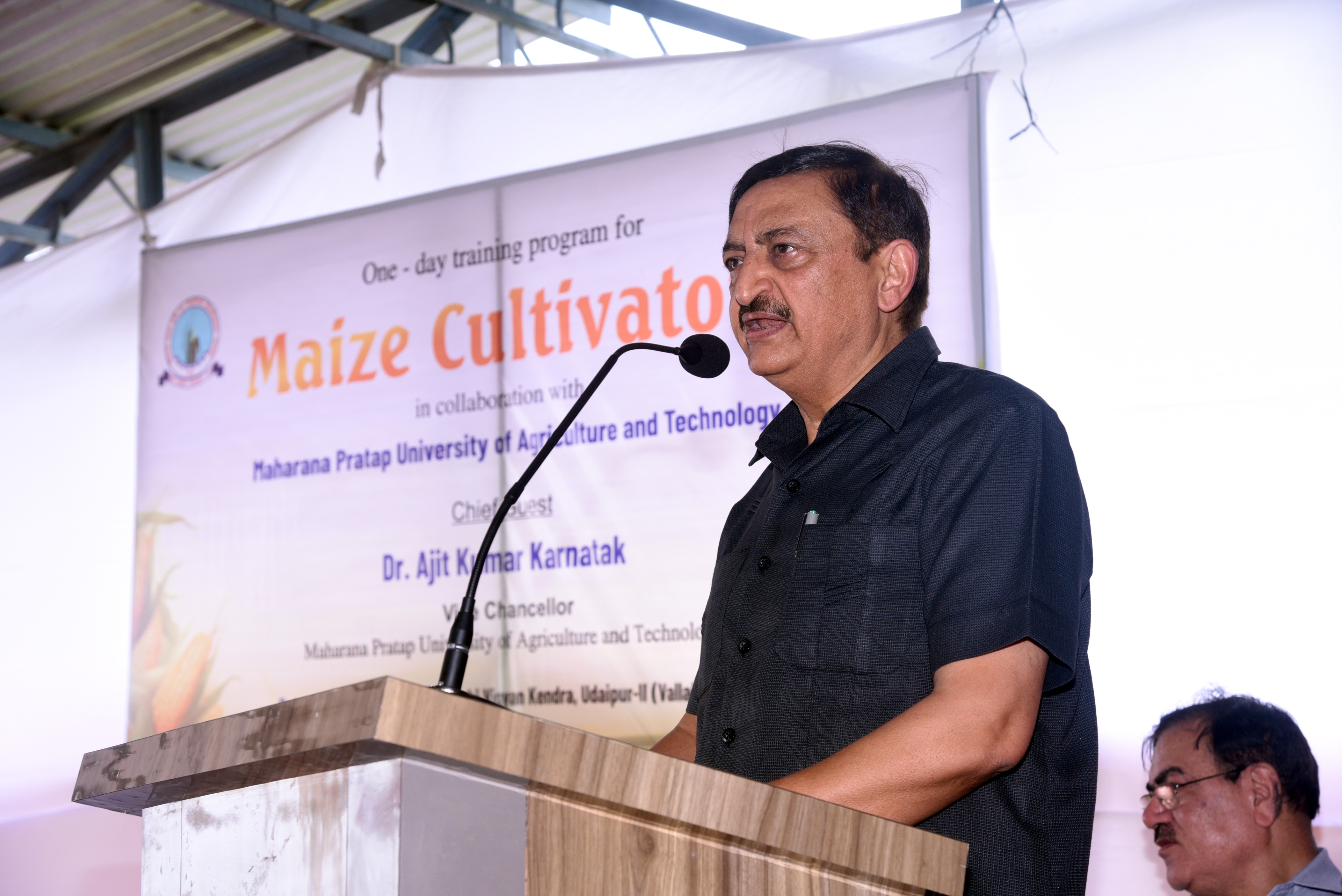Farmer Convention on Scientific Maize Production Techniques Held in Udaipur

Udaipur: India has become self-sufficient not only in food grains but also in fruits, milk, and sugar. Now, the focus must shift towards diversification and innovation in agriculture. Despite progress, India still lags in oilseeds and pulses, resulting in the compulsion to import edible oils—leading to large-scale foreign exchange outflows. This was stated by Dr. Ajeet Kumar Karnataka, Vice Chancellor of Maharana Pratap University of Agriculture and Technology (MPUAT), during a farmer conference on “Scientific Maize Production and Value Addition” held at the KVK campus in Vallabhnagar.
More than 300 progressive farmers from nine districts including Pratapgarh, Rajsamand, Dungarpur, Banswara, Chittorgarh, and Bhilwara participated in the event. Dr. Karnataka emphasized that integrating goat rearing, beekeeping, and mushroom cultivation with farming can significantly increase farmers' income and make them self-reliant.
He added that maize is not an indigenous crop; it was introduced by Columbus. Initially used as fodder due to its broad leaves, maize has evolved with scientific research into various high-value products like popcorn in cinemas and baby corn and sweet corn in five-star hotels. Maize germplasm is now being utilized for oil, starch, and even ethanol production, which serves as a green fuel blended with petrol.
Maize Productivity Tips by Experts
Renowned maize seed breeder and “Maize Man of India” Dr. Sai Das highlighted that India can compete with the USA and China in maize production. Climate change poses challenges, but timely irrigation and seed use can boost yield. He advised farmers to first irrigate and then apply fertilizers. Fertilizers should be applied at specific growth stages: after the 6-8 leaf stage, when plants reach shoulder height, and during tasseling. Weed control was also stressed as vital for productivity.
Fall Armyworm Control Measures
Entomologist Dr. Manoj Mehla noted that maize production in India has increased tenfold over the past seven decades. However, the recent invasion of Fall Armyworm caused significant crop damage. This pest targets tender leaves and can cause massive losses. Dr. Mehla recommended pheromone traps and seed treatment for effective pest control.
ISO Certification and Honours
During the event, Dr. Karnataka honored several KVK experts—Dr. B.S. Bhati (Banswara), Dr. R.L. Solanki (Chittorgarh), Dr. C.M. Balai (Dungarpur), Dr. Yogesh Kanojia (Pratapgarh), Dr. P.C. Reger (Rajsamand), Dr. Maniram (Vallabhnagar), and Prof. Latika Vyas (Directorate of Extension Education)—by presenting ISO certificates and traditional Mewari Pag turbans. These certificates had been previously issued by the Bureau of Indian Standards.
Exhibition and Demonstrations
The event also featured an exhibition led by Dr. Amit Dadhich under the All India Coordinated Research Project on Maize (AICRP). Experts including Dr. I.G. Mathur (former Director of Extension), Dr. Yogesh Kanojia, Dr. Amit Dadhich, and private sector representatives like Mayur Ameta, Gaurav Sharma, Sushil Verma, and Devesh Pathak shared insights on improved maize varieties, pest and disease management, and soil fertility enhancement.
Guru Purnima Significance and Tree Plantation
Dr. R.L. Soni, Director of Extension Education, opened the session by emphasizing the significance of organizing the conference on Guru Purnima. He stated that maize is cultivated on 11 lakh hectares in Rajasthan, primarily in southern districts such as Chittorgarh, Bhilwara, Pratapgarh, and Rajsamand, with Banswara growing maize year-round.
On this occasion, guests also planted Bottle Palm saplings on the KVK campus. The program was conducted by Prof. Latika Vyas.
साभार :
© CopyRight Pressnote.in | A Avid Web Solutions Venture.






